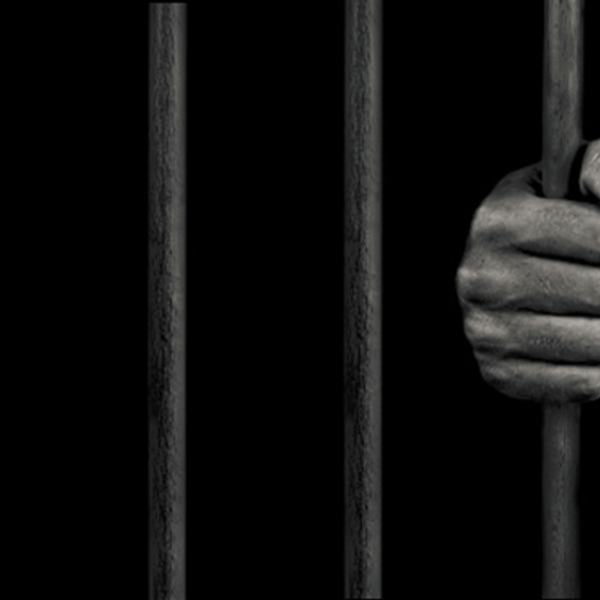As a woman of color, I tend to run in circles where the people around me are like-minded: social justice oriented, critical and occasionally, pretty angry at the injustices we see and experience. We get each other, and often times, a central reason as to why this is has to do with our discomfort around white people. We can all extrapolate stories from our pasts where we've felt targeted or mistreated specifically for being of color by white-identifiers. I personally have had white friends who would, unbeknownst to them, casually drop incredibly racist microaggressions during conversations.
At some point, this became so toxic I've had to end my relationships with these people.
I've also had woke white friends who are very conscious of the ongoing racial issues that have plagued this country. But despite being conscious, there has always been a dissonance that has amplified itself during very critical and tense conversations about race.
As a result, I have realized being conscious of race and caring about social issues such as Black Lives Matter (BLM) isn't enough for a white person should they wish to further their social justice work. Here are three major reasons why I think being woke and white won't exempt you from your whiteness:
1. Many white people are more concerned with getting involved in traditional modes of activism than with examining what their whiteness means.
Several of my white friends in the past have been able to defer their experiences and sit back and listen to people of color while they tell their stories. Many are also more than willing to join a BLM protest, but something that I've noticed a lot is an enormous difficulty with introspection. Many white people I've interacted with feel that the work they need to do is action-oriented, which it is to an extent. They should call out racist behavior if they see it. They should join a protest if they can. They should read books that deal with racial issues.
But if their work is not about asking themselves how their view of the world is entirely shaped by their whiteness, then their efforts are not enough.
To be white is to be racialized. In the same way that I am a brown person, who has a particular set of experiences, a white person has an experience that privileges them. In 1993, the lawyer Cheryl Harris published an article in the Harvard Law Review called “Whiteness as Property” that detailed how the Plessy v. Ferguson case turned whiteness into a property that white people have access to, and are therefore privileged by. To be privileged by whiteness is to live a particular life wherein one's experiences are not marred by race in the same way.
But the thing that many white people don't understand is that to live a life that is not marred by race is still a life marred by race—just in a different way.
A woke white person should be asking themselves, How is my not having to think about race all the time an extension of the white supremacist project? To be woke and white is to come to terms with one's self as a racial being as well as a beneficiary of whiteness.
2. Woke white people who think that they should be included in black and brown activist circles for the sake of unity are not as woke as they think they are.
I took an African American literature class last semester where one white student tried to argue that her whiteness shouldn't keep her from being a part of the movement. She asked the question, “Should I really be kept from participating simply because I'm white?” In her mind, she felt, on some level, victimized by those who do not want her involvement.
But the truth is that people of color who do not want a white person in their space are very much allowed to feel this way. And when so much legislation and media targets our oppression, one of the few areas of agency we have is our circle of friends and activists.
A white person who is woke—or at least conscious—should understand that their work doesn't come solely through what they include themselves in, but also through what they understand is not meant for them. This goes for activist circles, media (such as film or literature), and anything else created by people of color (POCs). If a white person's sense of exclusion and pain at the idea of being barred from a specific POC-centric setting overrides their concern for the well-being of said community, then that person is not woke. To be woke and white is to understand that the well-being of people of color needs to stand above your feelings.
3. White people who are woke are still beneficiaries of white supremacy.
I've encountered many white people who need to be told this point more than the other two. I have had so many white friends, colleagues, and classmates who seemed to be really conscious and some even identified as woke. I could joke with them about how white people “are so weird” when they do X or engage in Y behavior. But then sometimes something would still slip where their unconscious biases emerged and I would remember that they are still white, and therefore, they still benefit from white supremacy.
I knew a white queer person once who at first seemed woke, but then a few days later a black friend of mine came up to me and told me about a conversation she had with that same person. This person had, without intending to, assumed that my black friend's cousin couldn't afford to attend a private university. The former attempted to apologize for their assumption, but the damage had already been done.
This simple interaction helped me understand that regardless of how much a white person cares, thinks about or talks about race-related issues, they will always be beneficiaries of white supremacy and as a result, will still act out based on unconsciously racist assumptions without even intending to.
A woke white person is still a white person. They still benefit from white supremacy and therefore need to recognize that in benefitting, they are not an anomaly amongst white people. To be woke and white is to understand that because you're conscious, it doesn't mean you have officially distanced yourself from overtly racist white people, as if you are somehow not white anymore or are now inherently different from other white people for knowing what your textbook should have taught you.
These are three concepts that I hope more woke white people implement in their social justice beliefs. In general, I don't think white people should be barred from the struggle for the liberation of people of color. But I do think that the greater work woke (and all) white people should do—especially if they truly believe they are woke—is not necessarily through involvement with people of color (though that can be important in its own right), but through introspection and through educating their own white communities. White people need to come to terms with themselves as racial beings, and no amount of activist work with organizers and other woke individuals will make up for the questions a white person needs to ask themselves about what their whiteness means.
My hope is that white people can understand that being woke for them isn't just about knowledge. It's about humility, integrity, and an unadulterated honesty with themselves as much as with people of color.





















